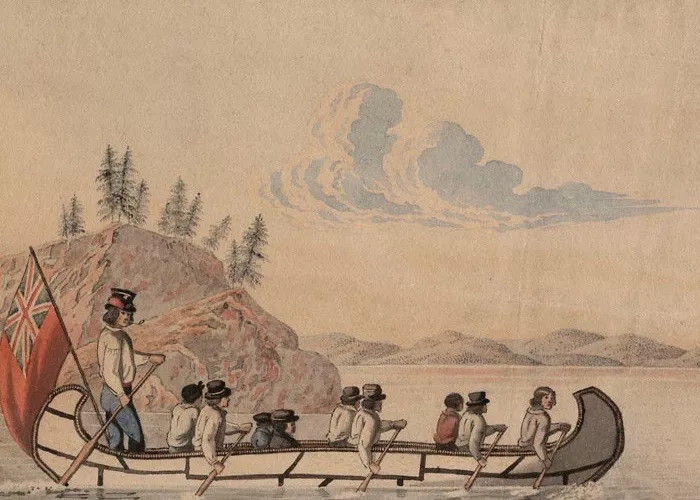April 13 has been a significant date in British history, marked by various events that shaped the nation’s political, social, and cultural landscape. These events range from military conflicts and royal decrees to scientific discoveries and tragic incidents. This article examines key historical occurrences on April 13 in Britain, offering detailed insights into each event.
What Happened on April 13 in British History?
1. The Amritsar Massacre (1919)
One of the most tragic events associated with British rule in India occurred on April 13, 1919. Known as the Jallianwala Bagh Massacre, this event unfolded in Amritsar, Punjab, during British colonial rule. British Brigadier-General Reginald Dyer ordered his troops to open fire on a peaceful gathering of Indian men, women, and children. The crowd had assembled to protest against the Rowlatt Act, which allowed the British government to imprison individuals without trial.
Dyer’s troops blocked the only exit of the enclosed garden and fired continuously for about ten minutes, killing hundreds and wounding over a thousand. This act of brutality shocked the world and marked a turning point in India’s struggle for independence. The massacre led to widespread condemnation of British rule and fueled nationalist movements led by figures like Mahatma Gandhi.
2. Birth of Thomas Jefferson (1743) – A Key Figure in British-American Relations
Though Thomas Jefferson was not British, his birth on April 13, 1743, is significant in the context of British history. Jefferson was one of the principal authors of the American Declaration of Independence (1776), a document that declared the American colonies’ separation from British rule. The tensions between Britain and its American colonies culminated in the American Revolutionary War (1775-1783), which ultimately resulted in the formation of the United States.
Jefferson’s writings, particularly his emphasis on liberty and democracy, had a lasting impact on Britain. His ideas influenced reform movements in Britain during the 19th century, including the Chartist movement, which sought greater political rights for working-class citizens.
3. The Siege of Acre (1799) and British Naval Involvement
On April 13, 1799, during the Napoleonic Wars, the French forces under Napoleon Bonaparte continued their unsuccessful siege of the city of Acre (in present-day Israel). British naval forces, led by Sir Sidney Smith, played a crucial role in preventing Napoleon from capturing the strategic city.
The British supplied weapons and manpower to the Ottoman defenders of Acre, frustrating Napoleon’s attempts to break through. The failure of the siege marked a major setback for Napoleon’s ambitions in the Middle East. This British intervention demonstrated the strength of the Royal Navy and reinforced Britain’s dominance in global naval affairs.
4. The Introduction of the UK’s First Income Tax (1799)
Although income tax was formally introduced in 1799 by Prime Minister William Pitt the Younger, it played a crucial role in Britain’s economic policies and war financing. The tax was initially a temporary measure to fund Britain’s wars against Napoleon Bonaparte. However, April 13 marked an important moment in discussions over the tax’s implications for British society.
While it was repealed after the Napoleonic Wars, income tax was later reinstated permanently in 1842 by Sir Robert Peel. Today, income tax remains a fundamental part of the UK’s economic system.
5. The Marriage of Prince Charles and Camilla Parker Bowles (2005)
On April 13, 2005, Prince Charles and Camilla Parker Bowles held a blessing for their civil marriage at St. George’s Chapel, Windsor Castle. This was a significant event in British royal history, as it marked the formal acceptance of Camilla as a senior member of the royal family.
Their marriage had been controversial due to Charles’s previous marriage to Princess Diana. However, over time, public opinion toward Camilla improved. She later became Queen Camilla upon the accession of King Charles III in 2022.
6. The UK’s First Public Radio Broadcast (1922)
On April 13, 1922, Marconi Company made the UK’s first public radio broadcast from Marconi House in London. This moment marked the beginning of a new era in British media. Later that year, the British Broadcasting Company (BBC) was founded, eventually becoming one of the world’s most influential public service broadcasters.
7. The Birth of Guy Fawkes (1570)
On April 13, 1570, Guy Fawkes, the infamous conspirator of the Gunpowder Plot of 1605, was born in York. Fawkes and his fellow Catholic plotters attempted to assassinate King James I by blowing up the Houses of Parliament. However, the plot was discovered, and Fawkes was arrested. His legacy lives on in Britain through Bonfire Night, celebrated every November 5.
8. The Founding of the Royal Army Chaplains’ Department (1796)
The Royal Army Chaplains’ Department (RAChD) was officially formed on April 13, 1796, to provide spiritual guidance to British soldiers. During the Napoleonic Wars, World Wars, and modern conflicts, chaplains have played a vital role in offering emotional support to troops on the battlefield.
9. The Death of Richard Trevithick (1833)
On April 13, 1833, Richard Trevithick, a pioneering British engineer and inventor, passed away. Trevithick is best known for developing the first full-scale working steam locomotive in 1804. His contributions to railway technology were crucial in shaping Britain’s industrial revolution and modern transportation.
10. The British Bombing of Copenhagen (1801)
April 13, 1801, marked the aftermath of the Battle of Copenhagen, where Britain launched a major naval attack against Denmark-Norway. The battle, commanded by Admiral Horatio Nelson, was part of the Napoleonic Wars. It resulted in a British victory, securing naval dominance in the North Sea. Nelson’s bold tactics, including disobeying orders to retreat, reinforced his reputation as one of Britain’s greatest naval heroes.
Conclusion
April 13 holds a diverse range of historical events in British history, spanning military victories, political changes, royal affairs, and technological advancements. From the Amritsar Massacre to the Siege of Acre and the rise of radio broadcasting, these events continue to shape Britain’s legacy. Each moment on this date has left an enduring impact on British society, influencing its governance, global presence, and cultural evolution.
Related Topics:

